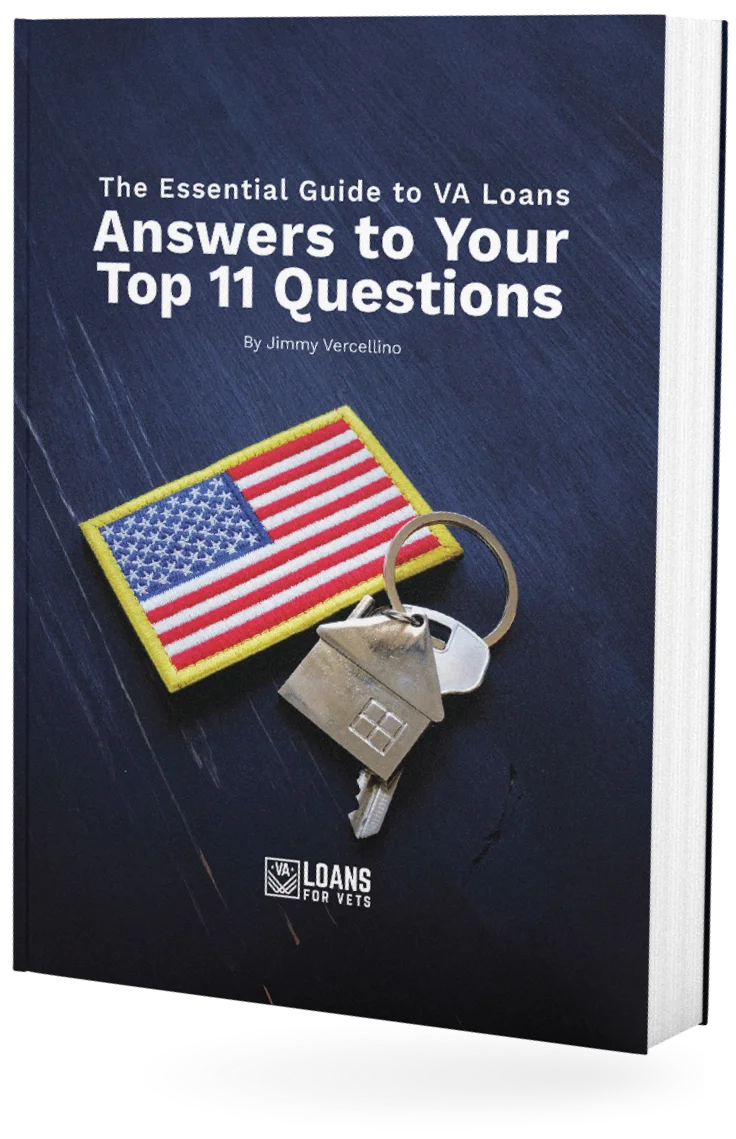If you’re a self-employed veteran trying to secure a VA loan, you may already know that the process can feel more complex than for traditional employees. At VALoansforVets, we understand that proving your income stability as a self-employed individual comes with its own set of challenges. But here’s the good news: you’re not alone, and we are here to help. With our expertise in working with veterans and self-employed individuals, we’ll guide you every step of the way, making the VA loan process as smooth and stress-free as possible.
Why Is Getting a VA Loan More Complicated for the Self-Employed?
For veterans who are salaried employees, proving income to a lender is relatively straightforward: you provide pay stubs, W-2s, and employment verification. However, as a self-employed veteran, the process of documenting and proving your income can be more complicated. Lenders need to ensure that your income is stable and reliable, and this often requires additional paperwork and a deeper dive into your financial history.
The Challenges You May Face
Being self-employed can present a few obstacles when applying for a VA loan. Here are some common challenges:
- Income Variability: Unlike salaried employees with a consistent paycheck, your income may fluctuate from month to month or year to year, making it harder for lenders to assess your earning stability.
- Documentation: Self-employed individuals often need to provide more extensive documentation, including tax returns, profit and loss (P&L) statements, and other financial records.
- Tax Deductions: While it’s normal (and smart) for self-employed individuals to take business-related tax deductions, this can sometimes reduce your “net” income on paper. Lenders base their decisions on net income, so too many deductions can make it look like you earn less than you actually do.
- Debt-to-Income Ratio (DTI): Lenders will scrutinize your DTI ratio closely. Self-employed individuals often have business expenses or loans that can impact their DTI, making it a critical component of your loan approval.
At VALoansforVets, we’ve helped numerous veterans navigate these challenges and successfully secure VA loans. Here’s how we can help you overcome these hurdles and make your dream of homeownership a reality.
How We Can Help You Qualify for a VA Loan
1. Guiding You Through the Documentation Process
As a self-employed veteran, you will need to provide more detailed documentation to qualify for a VA loan. Don’t worry—our team at VALoansforVets.com is well-versed in the type of documentation that lenders require, and we will help you every step of the way to ensure your finances are in order.
Here’s a breakdown of the documents we’ll assist you in gathering:
- Two Years of Tax Returns: Lenders will typically require your last two years of tax returns, including all schedules. If you haven’t been in business for two full years, don’t panic—we’ll work with you to explore other options or find lenders willing to make exceptions.
- Profit and Loss Statements: These are critical for showing the overall health of your business. Our team can provide guidance on how to structure your P&L statement in a way that clearly demonstrates your income stability.
- Business Bank Statements: Some lenders will request bank statements to further verify your income and business cash flow. We’ll help you prepare these and ensure they match the financial story you’re telling through your tax returns and P&L statements.
We understand that this can feel overwhelming, but we’ll help organize these documents, so you don’t have to worry about missing any key pieces of information.
2. Helping You Address Income Variability
One of the biggest hurdles for self-employed veterans is demonstrating consistent income. Lenders want to see that your income is stable over time, and that it will continue to be reliable throughout the term of the loan. This can be tricky if your business has seasonal fluctuations or irregular cash flow.
At VALoansforVets, we can help you:
- Showcase a Strong Track Record: Even if your income varies, we’ll help you demonstrate a history of steady income by looking at your tax returns over a longer period or highlighting positive business trends.
- Prepare for Questions: Lenders may ask for explanations if they see significant income fluctuations. We’ll guide you in preparing reasonable explanations that will satisfy the lender’s concerns.
- Strengthen Other Aspects of Your Application: If your income fluctuates significantly, we’ll look at other ways to strengthen your loan application, such as improving your credit score or reducing your debt-to-income ratio.
3. Maximizing Your Income on Paper
As a self-employed veteran, you’re likely taking advantage of tax deductions for business expenses, which is excellent for lowering your tax bill but not so great for your loan application. Lenders look at your net income (after expenses) to determine your eligibility, so too many deductions can make it appear as though you earn less than you really do.
We can help you in several ways:
- Add Back Certain Deductions: Some deductions, like depreciation or business use of a home, don’t affect your actual cash flow. We’ll work with the lender to ensure they “add back” these deductions to your net income, increasing your chances of qualifying.
- Future Planning: If you’re thinking of applying for a VA loan in the near future, we can help you strategically plan your tax deductions for the next tax year to maximize your reported income.
4. Improving Your Debt-to-Income Ratio
Your DTI ratio is a key factor in determining whether you qualify for a VA loan. As a self-employed veteran, you might have business-related debt or expenses that can negatively impact this ratio. We’ll help you analyze your DTI ratio and make adjustments to improve your loan prospects.
Here’s how:
- Paying Down High-Interest Debt: Reducing your outstanding debt can help lower your DTI ratio. We’ll help you identify which debts to pay off or refinance before applying for a VA loan.
- Maximizing Business Write-Offs: While too many tax deductions can reduce your net income, certain write-offs can reduce your DTI ratio without negatively affecting your loan eligibility. We’ll help you find the balance between lowering your DTI and maximizing your income on paper.
5. Partnering with Lenders Who Understand Self-Employment
One of the most significant advantages of working with VALoansforVets.com is that we partner with lenders who have experience working with self-employed veterans. Many lenders shy away from self-employed borrowers because of the perceived risk and added complexity. However, we work with a network of VA loan specialists who understand the unique challenges of self-employment and are willing to go the extra mile to assess your financial situation thoroughly.
When you work with us, you won’t have to worry about being turned away because of your self-employment status. Instead, we’ll connect you with lenders who understand the nuances of your income and are ready to help you secure the best possible loan terms.
The Importance of Credit Score and Cash Reserves
Even though your income is a significant part of the VA loan qualification process, it’s not the only factor lenders consider. At VALoansforVets.com, we believe in taking a holistic approach to your financial profile. Two other critical areas we’ll help you focus on are your credit score and cash reserves. Strengthening these can compensate for any challenges posed by self-employment income variability.
1. Improving Your Credit Score
Your credit score plays a pivotal role in your loan approval process, and it’s one area we can help you improve. If your self-employment income fluctuates or doesn’t meet the lender’s expectations, having a higher credit score can work in your favor. Here’s how we’ll support you:
- Credit Repair Assistance: If your credit score isn’t where it needs to be, we’ll help you understand why. Whether it’s through paying down high balances, addressing late payments, or correcting errors on your credit report, we can guide you through improving your score before you apply.
- Strategic Credit Management: Sometimes, even small changes in how you manage your credit accounts can have a big impact on your score. We’ll provide tips on optimizing your credit card balances and other debts to ensure your credit profile is as strong as possible.
- Lender Matching Based on Credit: Not all lenders require the same credit score for VA loans. Because of our vast network of VA loan providers, we can match you with lenders who offer flexible credit requirements, making it easier for you to get the loan you need.
2. Building Cash Reserves
Having cash reserves—savings or liquid assets that you can tap into—can make your loan application stronger. While VA loans don’t typically require a down payment, having extra funds set aside can demonstrate financial stability, especially if your income fluctuates.
Here’s how we help:
- Assessing Your Financial Cushion: We’ll take a close look at your savings and liquid assets to determine how strong your cash reserves are. If necessary, we’ll provide recommendations on building these reserves before applying.
- Gift Funds and Other Financial Resources: Did you know that you can use gift funds from a family member to build your cash reserves? We’ll help you navigate the guidelines and documentation needed to use gift funds for your VA loan application.
- Business Reserves: If your self-employment income supports your household, showing a solid amount of cash reserves in your business account can also strengthen your loan application. We’ll guide you through how to present this information to your lender effectively.
Common Misconceptions About VA Loans for Self-Employed Veterans
At VALoansforVets, we often encounter misconceptions from self-employed veterans about VA loans, which can lead to unnecessary stress or even deter people from applying. Let’s clear up a few:
- Myth: Self-Employed Veterans Are Less Likely to Be Approved: While it may be more challenging to gather the right documents, self-employed veterans have just as much chance of qualifying for a VA loan as those with traditional employment. With the right guidance (like the kind we provide), you can secure a VA loan and enjoy the benefits of homeownership.
- Myth: You Need a Higher Income: Some veterans believe that self-employed individuals need to demonstrate significantly higher income to qualify for a loan. In reality, what matters is stable and verifiable income, not necessarily a higher amount. We’ll help you prove that your income, while potentially variable, is reliable over time.
- Myth: Lenders Don’t Like Working with Self-Employed Borrowers: While some lenders may be hesitant to work with self-employed individuals, we’ve established relationships with lenders who are more than willing to go the extra mile. When you partner with us, we’ll make sure you’re working with a lender who understands and appreciates your self-employment situation.
The VA Loan Advantages You Can Still Enjoy as a Self-Employed Veteran
The good news is that, despite the challenges of self-employment, you are still entitled to the incredible benefits of a VA loan. At VALoansforVets, we’re passionate about ensuring that self-employed veterans don’t miss out on these perks:
- No Down Payment: VA loans typically don’t require a down payment, which can make homeownership more accessible for veterans. This can be a huge advantage for self-employed individuals who may prefer to keep more cash in reserves.
- No Private Mortgage Insurance (PMI): Unlike other loans that require PMI when you don’t put 20% down, VA loans don’t require this additional cost, making your monthly payments more affordable.
- Competitive Interest Rates: VA loans often come with lower interest rates than conventional loans, saving you thousands of dollars over the life of the loan.
- Flexible Credit and DTI Requirements: As a self-employed veteran, you may have concerns about your credit score or debt-to-income ratio. VA loans tend to have more lenient credit and DTI requirements compared to other loan types. Our team will help you take full advantage of these flexibilities.
Ready to Get Started? We’re Here to Help!
At VALoansforVets.com, we specialize in helping self-employed veterans overcome the challenges of qualifying for a VA loan. We understand your unique circumstances and are committed to finding the best solution for you. We’ll be with you every step of the way, from gathering documentation to working with lenders who truly understand self-employment.
When you work with us, you’re not just another loan application. We treat every veteran with the respect and dedication they deserve, and we’re proud to have helped countless self-employed veterans secure VA loans, regardless of the hurdles they faced.
Contact Us Today
If you’re ready to take the next step toward securing your VA loan, don’t wait—contact us today! We offer personalized consultations to assess your situation and create a tailored plan to help you qualify. Whether you have questions about documentation, income variability, or finding the right lender, we’re here to help.
At VALoansforVets, we believe that every veteran deserves the opportunity to own a home, and we’re honored to help make that dream a reality. Let us take the stress out of the VA loan process so that you can focus on what matters most—your future as a homeowner.
Start your journey with us today and experience firsthand how VALoansforVets makes homeownership possible, even for self-employed veterans.



